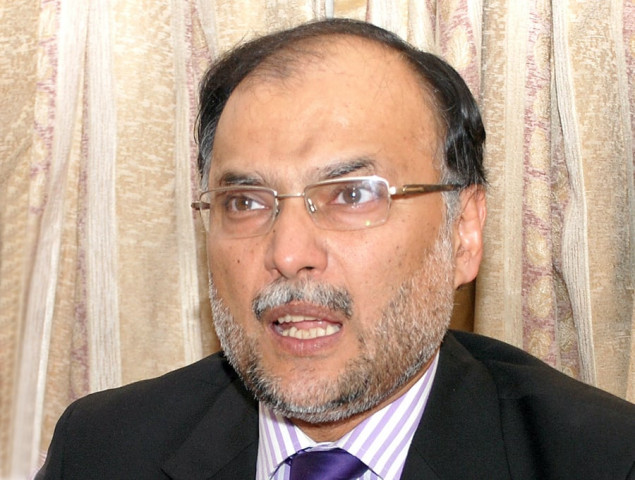Step-motherly treatment: Social sciences—a neglected and forsaken discipline
Discrimination in allocation of funds, societal attitude causing imbalance.

Almost a month ago, talking to vice-chancellors of various universities, Minister for Planning and Development Ahsan Iqbal had stressed the importance of having social science subjects in university curricula.

Referring to the decline of humanities and social sciences, the minister said that he had never come across a good research work on militancy, radicalisation of society stating that studying sociology, criminology and psychology was equally important like any other scientific subject.
On ground too, the picture of the social science at the higher education level is a lot more than just gloomy. Promoting natural science and engineering subjects has been in prime focus of not only the government and policymakers but also the parents and society.
To back this, the data also justifies what has been done to the most important, yet neglected disciplines, over the years.
Since the inception of HEC in 2002, the number of PhD scholars in scientific disciplines has witnessed remarkable increase to 14,052. But the number of doctorates in social sciences and humanities has remained at 2,296 since 2002. While of the 7,614 PhD scholars who availed the HEC scholarship to pursue their studies abroad, only 803 were in the social sciences discipline.

Research work produced by scholars of social sciences and humanities is far less than the other disciplines. Scholars produced 4,907 research papers in natural sciences, including agriculture sector, 1,788 in life sciences and 378 in engineering and information technology till 2014. Only 167 research papers were published in the social science disciplines and 47 in arts during the period in review.
Allocation of funds and provision of other facilities are other factors that contribute to the disparity. In 2013-2014 only five per cent of the total research projects approved for funding by the HEC were fromsocial science and humanities while 95 per cent funds were allocated for science and other disciplines.
Dr Sohail Naqvi, former HEC executive director and currently the vice-chancellor of Lahore University of Management Sciences (LUMS) justifies the policy. “Yes the natural sciences were preferred over social sciences and humanities but that was the need of the hour,” he says adding that later HEC did try to balance the preferences.
The HEC has always been claiming that it never prefers natural sciences over social sciences but the number of indigenous and foreign scholars paints an entirely different picture.
But the incumbent HEC chairperson blames lack of interest among the candidates for social sciences.
According to Dr Mukhtar Ahmad, this year they have tried to set aside 30 per cent of the scholarships for the most ignored subjects including agriculture and governance but a dismal number of students opted for them.

A teacher at Quaid-i-Azam University’s sociology department claims that HEC was neglecting research in the humanities.
The societal misperception has taken toll on the research and development of social sciences research at the public sector universities. Meager resources lead to limited facilities for such disciplines while what the libraries has to offer is just the outdated books and journals. While natural sciences have a lion’s share in the board’s funding and focus for projects, research and other equipment for those disciplines.
Mahnoor Fatima, an associate professor at the National University of Modern Languages slams the government for neglecting the discipline. “They have not set priorities for themselves so what can you expect from them,” she adds curtly.
To end this digital divide, the HEC has taken some measures to provide access to digital library where one can read and download international journals, articles and e-books on various topics. But again it is confined to those with internet connections or computers and laptops.
An official at the HEC, who deals with the research grants, commented that they continue to receive low quality research proposals in humanities which are one of the prime causes for low financial assistance.
Some view that the problem of neglect stems at the college level.
Zafar Malik, political sciences teacher at the Federal Government Sir Syed College Rawalpindi agrees to the notion that bias towards social sciences starts at the intermediate level where students opt for engineering, medical or general science subjects while only a handful of colleges have few other subjects to offer. “We entrench such things from the start leaving students with no option because this is what the market needs,” he added.
HEC chairperson said they were working with the current government to focus on forensic sciences, agriculture, contractual lawyers, anti-terrorism related fields and cyber crimes.
But he believes that the government needs to not only to encourage students to adopt social sciences at school level but also provide incentives to scholars to do research in social sciences.
“Government also needs to create space in the market for such people so that students do not only get swayed towards the engineering and pure sciences,” he concludes.
Published in The Express Tribune, December 15th, 2014.



















COMMENTS
Comments are moderated and generally will be posted if they are on-topic and not abusive.
For more information, please see our Comments FAQ